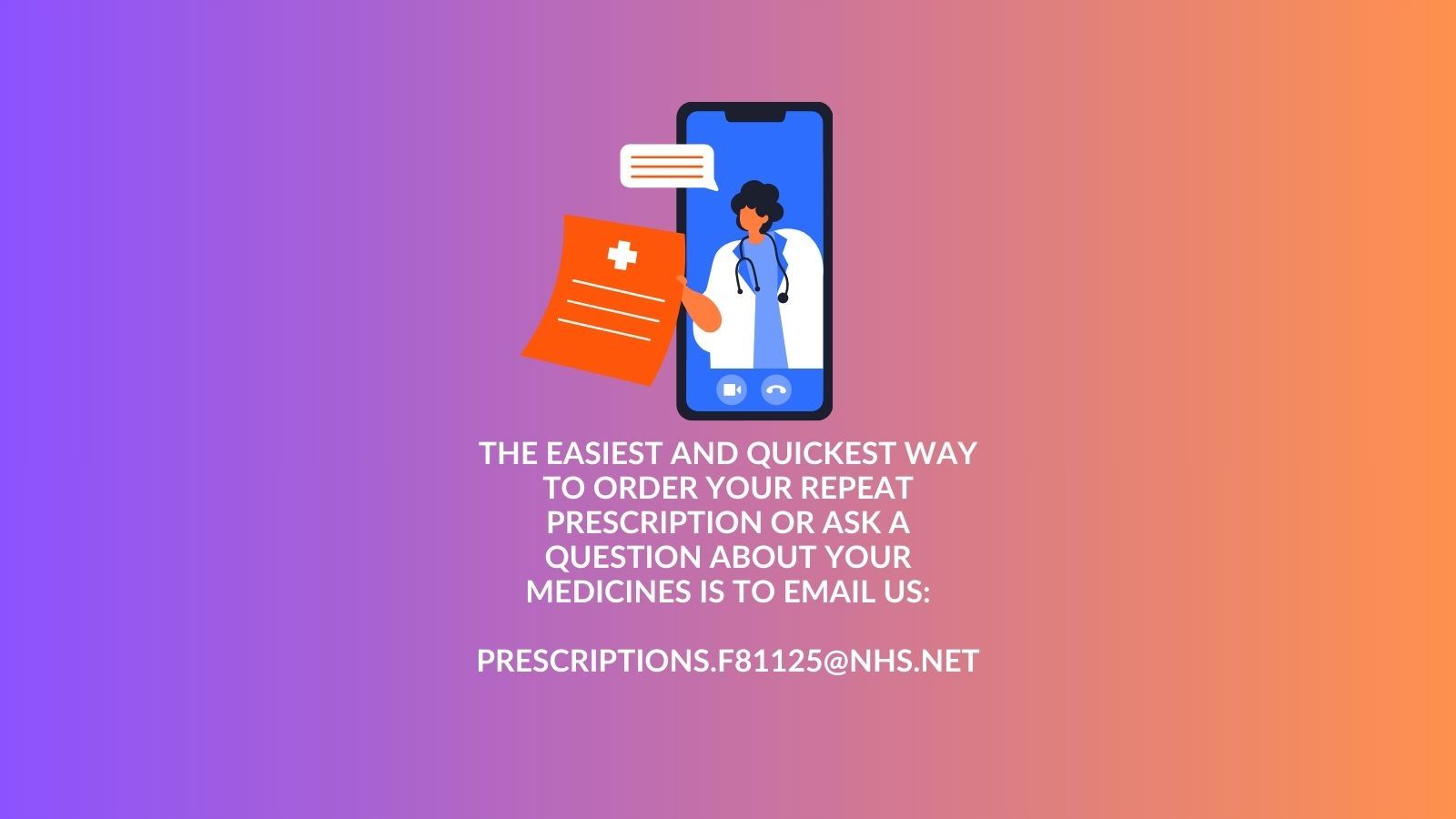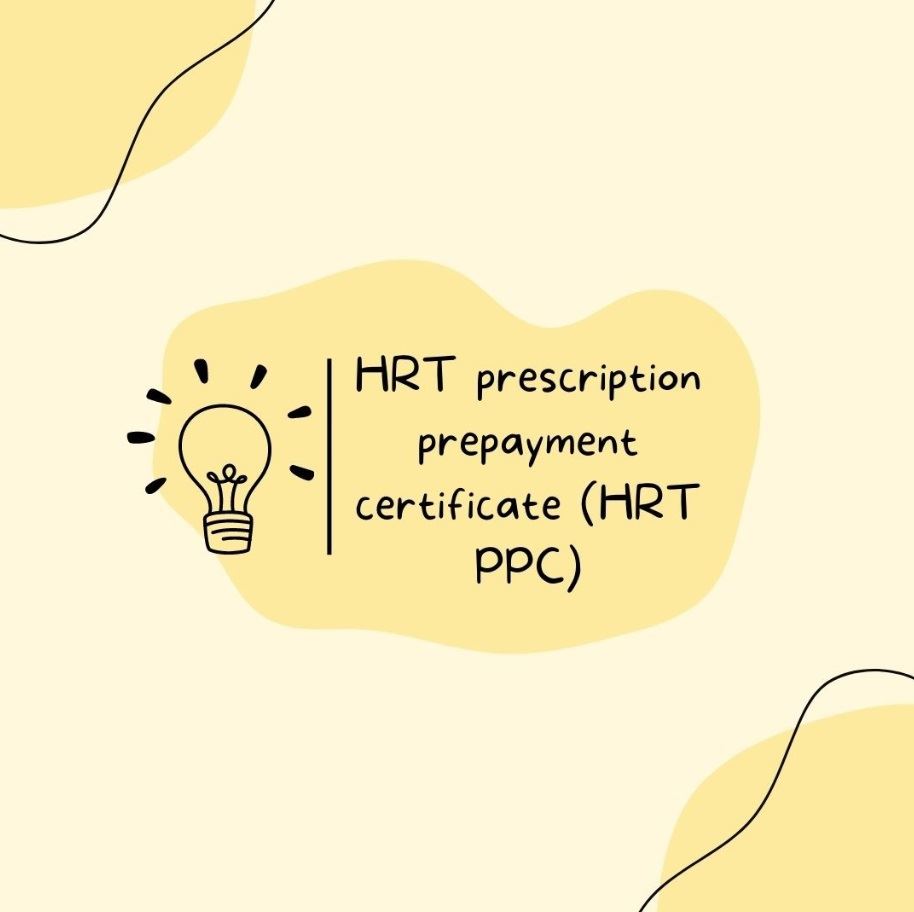
Electronic Prescriptions
What is an Electronic Prescription?
Most prescriptions are now sent and signed electronically.
This means you don’t usually need a paper prescription.
Your Two Choices
1. Choose One Pharmacy
-
You pick a pharmacy you want to use every time.
-
Your prescription is sent straight to that pharmacy.
-
You collect your medicine there.
-
You do not need a paper prescription.
2. Choose a Pharmacy Each Time
-
If you prefer, you can choose a different pharmacy each time.
-
You will get a paper copy with a barcode.
-
The pharmacy scans the barcode to get your prescription.
Paper Prescriptions
Paper prescriptions are still available in special situations, but most prescriptions are electronic.
Why Choose One Pharmacy?
If you get regular medicines, choosing one pharmacy can save you time.
Your repeat prescriptions will be sent there automatically.
You will order your medicines the same way as usual, but you won’t need to collect a paper prescription from the GP.
Changing Your Pharmacy
You can change or cancel your chosen pharmacy at any time.
Speak to your GP or pharmacist before ordering your next prescription.
Give time for the change to update.
If You Are Unhappy
You should be told about electronic prescriptions before your pharmacy choice is recorded.
If you are unhappy, you can complain to:
-
The pharmacy
-
Your GP practice
-
Your local NHS clinical commissioning group (CCG)
Who Can See My Prescription?
Electronic prescriptions are safe, secure and private.
Only NHS staff who need to process your medicines can see them.
Repeat Prescriptions
How to Order Your Repeat Prescription
You can order your repeat medicines in these ways:
1. By Post
-
Send us your repeat slip (the list of your medicines.)
-
Mark the items you need.
-
Include a stamped envelope with your address so we can post it back.
2. At the Surgery
-
Put your repeat slip into the prescription box at either surgery.
3. Through Your Chemist
-
Some local chemists can order and collect your medicines for you.
-
Speak to your chosen chemist to set this up.
4. By Email
When Will It Be Ready?
-
If we get your request before 10:30am (Mon–Fri), it will be ready after 2 working days.
-
We cannot take repeat requests on the phone.
Some Medicines Cannot Be Repeated
-
Some medicines (for example, strong painkillers) may not be available on repeat.
-
You may be asked to book a GP appointment to talk about these medicines.
If Someone Else Collects For You
-
You must fill in a consent form to tell us who is allowed to collect for you.
-
You can choose more than one person.
-
Your choices stay on your record until you tell us to change them.
What Is a Generic Medicine?
Brand Name vs Generic Name
-
When a company creates a new medicine, they give it a brand name.
-
They also get a patent, which means no one else can copy the medicine for a number of years.
-
The medicine also has a generic name — this is the medical name for the drug.
Example
-
Generic name: paracetamol
-
Brand names: Panadol, Calpol
They are the same medicine.
Why Does the NHS Use Generic Medicines?
-
Generic medicines are usually cheaper because the companies did not have to pay for the original research.
-
Using generics helps the NHS save money, which can then be spent on other important services.
Medicines Can Change
Next time you visit us, your medicine may look different from the last time.
This may be because the doctor has given you a generic (non-brand) version.
If You Are Worried
If the medicine looks or is named differently and you are unsure:
-
Ask your pharmacist, or
-
Ask your doctor
They will explain why it has changed.
Your Medicine Is Safe
All medicines in the UK must be checked and approved to make sure they are:
-
Safe
-
Good quality
-
Exactly what the label says

HRT PPC
If you are on HRT and pay for prescriptions, click on the following links for information on how to save money:
https://www.gov.uk/get-a-ppc/hrt-ppc
https://www.nhsbsa.nhs.uk/help-nhs-prescription-costs/nhs-hormone-replacement-therapy-prescription-prepayment-certificate-hrt-ppc/terms-and-conditions-buying-nhs-hormone-replacement-therapy-prescription-prepayment-certificate-hrt